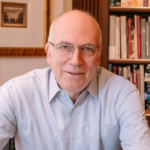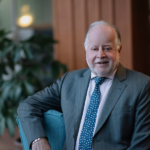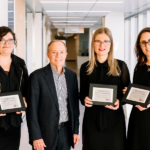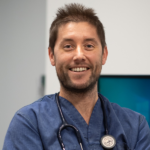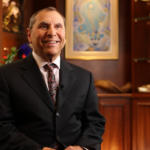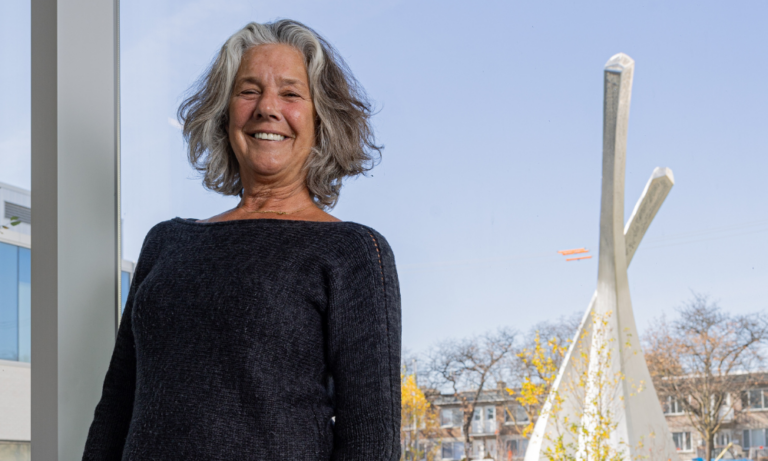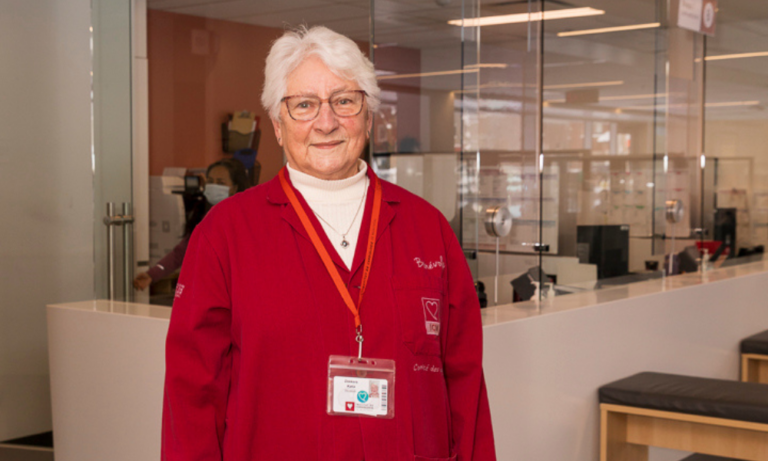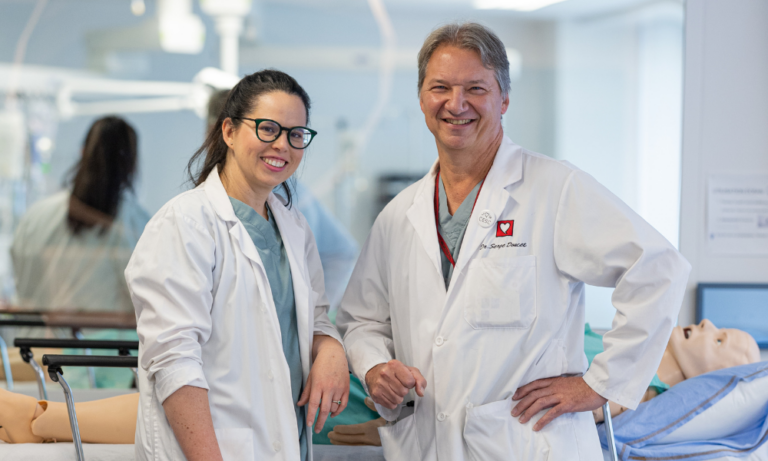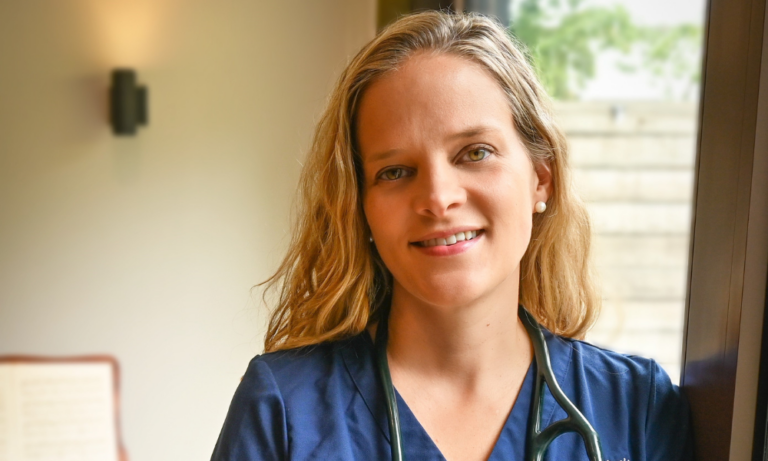Julie Todd: ensuring the MHI’s medical legacy lives on
Interview with Julie Todd, Director of the Infocentre department
Home > Blog > Julie Todd: ensuring the MHI’s medical legacy lives on
This article is adapted from the fourth edition of the Foundation’s magazine
As the Montreal Heart Institute celebrates 70 years of greatly impacting the lives and health of Quebecers, it can proudly showcase its legacy thanks in large part to the work and vision of Julie Todd, Director of the Infocentre department. Throughout her career, she’s shown an exceptional ability to rally key players in the healthcare sector around critical issues. In addition to a degree in sociology with a focus on healthcare, this formidable problem-solver — who’s passionate about data and loves to take on challenges — also has a master’s degree in statistical and epidemiological concepts, as well as a certificate in psychology.
“I needed to find the ways in which individuals are connected to large-scale group phenomena,” she said.
A multidisciplinary background
After taking part in various research projects on medical communication, Julie joined the physical health branch at the Agence de la santé et des services sociaux. “My mentor at the time asked me to oversee obstetrics and childbirth. Because I was able to solve the ongoing issues, I became involved with cardiology and neurology. I set up regional committees, and that’s when I met a few physicians from the MHI and started building ties with the Institute. When the Agence was abolished in 2015 as a result of the healthcare reform, Dr. Peter Guerra asked me to come work for the MHI. I immediately accepted,” she said.
Archives that tell a heartfelt story
The MHI had no structure for keeping records of figures when Julie first began working there. This was a challenge for someone so passionate about analyzing statistical data. “There was nothing for me to analyze in order to determine what was going well and what could be improved. I therefore started building a data architecture, and over time, we were able to implement the basis of a structure,” she said.
During a visit to the documentation centre in search of archival photos, Julie was given two large binders containing a plethora of paper clippings. She couldn’t have known then that she was holding history in her hands. “The clippings were from the 1950s. It was like finding a lost treasure! It also included a copy of every year’s annual report, including key facts — all written by the Institute’s founder, Dr. Paul David. It was a piece of history that was on the verge of being forgotten. I became completely invested in the project. The more I discovered, the more I realized the importance of sharing this history. We needed to digitize everything to preserve it.”
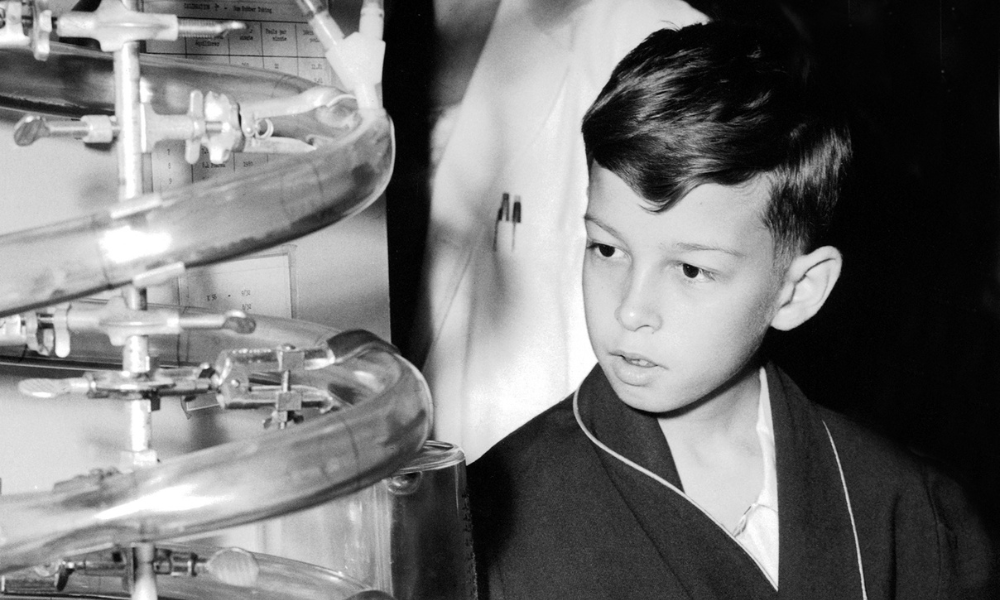
In 1957, Pierre Whissel became the first patient to undergo open-heart surgery thanks to the heart-lung pump prototype.
70 years of medical history preserved thanks to data convergence
“I realized in 2020 that some departments were missing data. We went so far as to pore over all the information, from the very earliest records to the present day, using an approach that was nearly archeological. Prior to undertaking this massive analytical endeavour, we didn’t really know just how big of an impact the Institute has had on Quebecers. We now have a crystal clear picture. No other hospital in Quebec has done what we have!” she said enthusiastically.
Milestones that have marked the history of cardiology
Thanks to the tireless work of the Infocentre team, a wealth of information on the health of Quebecers is now available, including data on the rate of obesity, diabetes and heart attacks over the past half-century. But it’s the undeniable impact of cardiovascular medicine that thrills Julie. “If a patient with heart disease now lives longer than the average life expectancy in Quebec, it is undeniably because of the MHI and the legacy of Dr. Paul David’s vision. Prevention (which is one of the MHI’s missions), smoking cessation and our surgical treatments have had a huge impact. Today, our patients live twice as long and spend 75% less time in the hospital. That is simply massive!” she said.
Julie’s heart
If Julie’s heart could speak, here’s what it would say:
“It’s an honour to let the figures tell the story of each new chapter and each act carried out by the thousands of people who are devoted to a cause that has profoundly changed our society for the better. We are all contributors to an Institute that’s paving the way for a brighter future. I’m truly grateful for its success. What about you?”
Contribute to progress in cardiovascular medicine by donating today.
Donate
